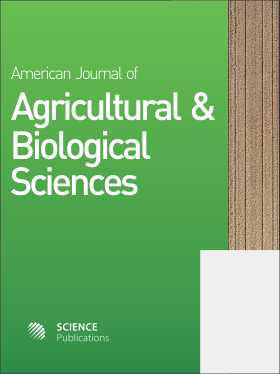Nasal Administration of Quercetin Liposomes Improves Memory Impairment and Neurodegeneration in Animal Model of Alzheimer's Disease
- 1 Department of Physiology, Faculty of Medicine, Khon Kaen University, Thailand
- 2 Department of Physiology (Neuroscience Program), Faculty of Medicine, Graduate School, Khon Kaen University, Khon Kaen, Thailand
Abstract
Problem statement: At present, the development of protective strategy against Alzheimer’s Disease (AD) is increasing its importance due to the high prevalence of AD, a limitation of therapeutic efficacy and its high impacts on economic and social aspects. The development of the preventive and therapeutic strategy to protect against the path physiology induced by free radicals in AD from antioxidant has gained very much concentration. Quercetin, one of the flavonoids in fruits and vegetables, has a powerful antioxidant activity both in vitro and in vivo. However, poor absorption, rapid metabolism and limited ability to cross the blood-brain-barrier are obstacles to its use for treatment of AD. Liposome’s have been used as an effective delivery system to the brain. Advantages associated with the nasal administration over oral route include higher bioavailability due to no first pass hepatic metabolism and rapid absorption leading to shorter time to onset of effect. Based on all these points, the possible effects of quercetin liposomes via nasal route on improving cognitive behavior and neurodegeneration in animal model of Alzheimer’s disease were investigated. Approach: Male Wistar rats were pretreated with quercetin liposome’s, containing 0.5 mg of quercetin in 20 μL (dose = 20 μg), via intranasal route once daily continually for 2 weeks before and 1 week after AF64A administration. Learning and memory was evaluated using the Morris water maze test at 7 days after the AF64A administration and then the rats were sacrificed for determining the density of neurons and cholinergic neurons in hippocampus using histological and immunohistochemical techniques. Results: Nasal administration of quercetin liposome’s significantly prevented changes of spatial memory of AF64A treated rats. The cognitive enhancement of quercetin liposome’s was found to be related to its ability to inhibit the degeneration of neurons and cholinergic neurons in hippocampus. Conclusion: Nasal administration of quercetin liposome’s possessed cognitive enhancer and neuroprotectant in animal model of AD, suggesting a potential novel therapeutic strategy against AD of quercetin liposomes.
DOI: https://doi.org/10.3844/ajabssp.2010.286.293

- 6,217 Views
- 5,787 Downloads
- 36 Citations
Download
Keywords
- Quercetin liposome's
- nasal administration
- Morris water maze test
- Alzheimer's disease
- spatial memory
